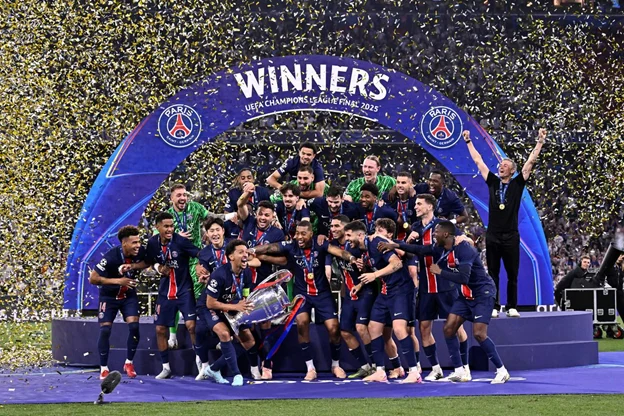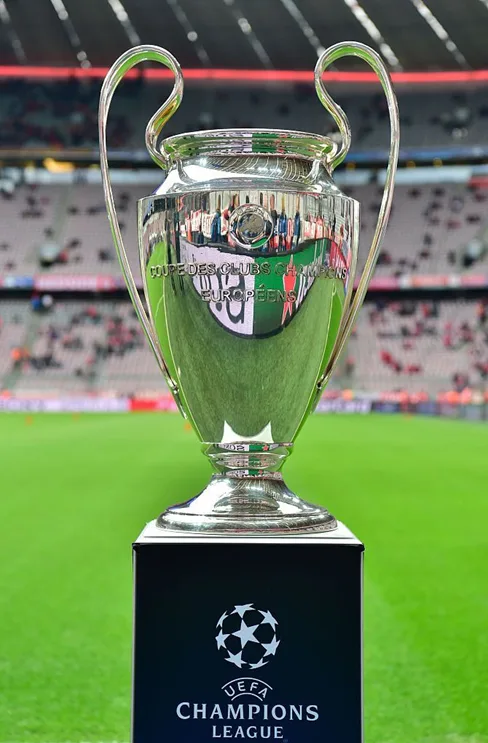UEFA unveils a transformative blueprint for the Champions League in 2027-28, positioning the defending titleholders at the heart of a high-stakes opening spectacle. As the European football governing body partners with U.S.based agency Relevent, the new format introduces a standalone Tuesday-night fixture where CL winners host a marquee clash, captivating global audiences from the first whistle. This innovation, coupled with aggressive pursuits of streaming deals from platforms like Netflix, Amazon Prime, and Apple TV+, propels UEFA toward a €5 billion annual revenue milestone. Football enthusiasts worldwide now anticipate a CL era that blends tradition with digital dynamism,will this blueprint elevate the competition or redefine fan engagement altogether?
This bold format amplifies drama and accessibility but raises questions about player strain and fan access. As the CL evolves, it promises a global spectacle starting with a champions’ showcase .A New Dawn for the CL Building on the 2024-25 shift to a 36-team league phase, UEFA refines the CL for 2027. Teams play eight varied matches, with the top eight advancing directly to the round of 16 and 9th to 24th entering the playoffs.
Now, for 2027-28, UEFA refines this structure through its joint venture with European Football Clubs, dubbed UC3, which launches tenders for broadcast rights across key markets like the UK, France, Germany, Italy, and Spain.
Relevent, co-founded by Miami Dolphins owner Stephen Ross, spearheads these efforts, targeting a “global first-pick” package that grants exclusive rights to one premium CL game per matchweek potentially streaming to billions via Netflix or similar giants.
This strategic pivot draws inspiration from Netflix’s NFL Christmas Day broadcasts and its recent acquisition of FIFA Women’s World Cup rights for 2027 and 2031.
“UC3 drives a step change in European club football marketing,” declares co-managing director Charlie Marshall, emphasizing closer UEFA-club collaboration to unlock fresh value for fans and partners.

UCL 2027: Club Benefits and Challenges in the Revamped Format
Introducing a standalone opening match for the defending champions and securing global streaming partnerships with platforms like Netflix to achieve a €5 billion revenue goal. Collaborating with Relevent, UEFA builds on the 2024-25 36-team league phase, announced in October 2025, to deliver clubs unprecedented financial and branding opportunities. However, the format also presents challenges, including player fatigue and potential competitive imbalances.
ADVANTAGES:
- Revenue Growth Fuels Development: UEFA’s UC3 partnership with clubs drives €5 billion annually through innovative broadcast deals, prioritizing streaming platforms like Netflix or Amazon Prime. Nearly €2.5 billion in CL prize money empowers clubs to invest in talent, facilities, and youth academies. Smaller clubs, such as Club Brugge, gain from revenue sharing, strengthening their financial footing against wealthier rivals.
- Standalone Opener Amplifies Visibility: The defending champions headline a solo Tuesday-night opener, capturing global attention. Elite clubs like Real Madrid maximize ticket revenue and sponsorships, while potential underdog champions, like Sporting, secure a worldwide stage, boosting their marketability and fanbase.
- Global Streaming Expands Fanbases:Streaming deals with platforms like Netflix broadcast CL matches to new markets in Asia, Africa, and the Americas. Clubs like Benfica capitalize on increased global exposure, driving merchandise sales and international partnerships through accessible, on-demand viewing.
DISADVANATAGES:
- Player Burnout Intensifies: The eight-match league phase, spanning September 2027 to January 2028, plus a potential standalone opener, heightens player workloads. Clubs balancing domestic and international schedules, such as Chelsea, Juventus, face elevated injury risks, complicating squad management.
- Seeding Risks Favor Elites: Unconfirmed rumors of a two-tier league phase elite vs. emerging clubs could skew draws, benefiting top teams like Bayern Munich while challenging smaller clubs like PSV Eindhoven. Knockout hosting privileges for top seeds further risk widening the competitive gap
- Streaming Exclusivity Threatens Fan Access: Exclusive streaming deals may limit viewership in regions with high subscription costs, reducing local engagement for clubs like Celtic. Lower attendance and weaker matchday atmospheres could impact revenue for fan-driven teams.
- Commercial Demands Strain Resources: The opener’s potential ceremonies require clubs to invest in production, diverting focus from on-pitch priorities. Smaller clubs, less equipped for such spectacles, may struggle to compete with the branding power of wealthier rivals like Paris Saint-Germain.
Strategic Outlook for Clubs:
The 2027 CL format equips clubs with significant financial and promotional opportunities. Top teams leverage openers and knockout perks, while smaller clubs benefit from revenue redistribution and global reach. However, clubs must address player welfare and navigate potential seeding biases to thrive.


